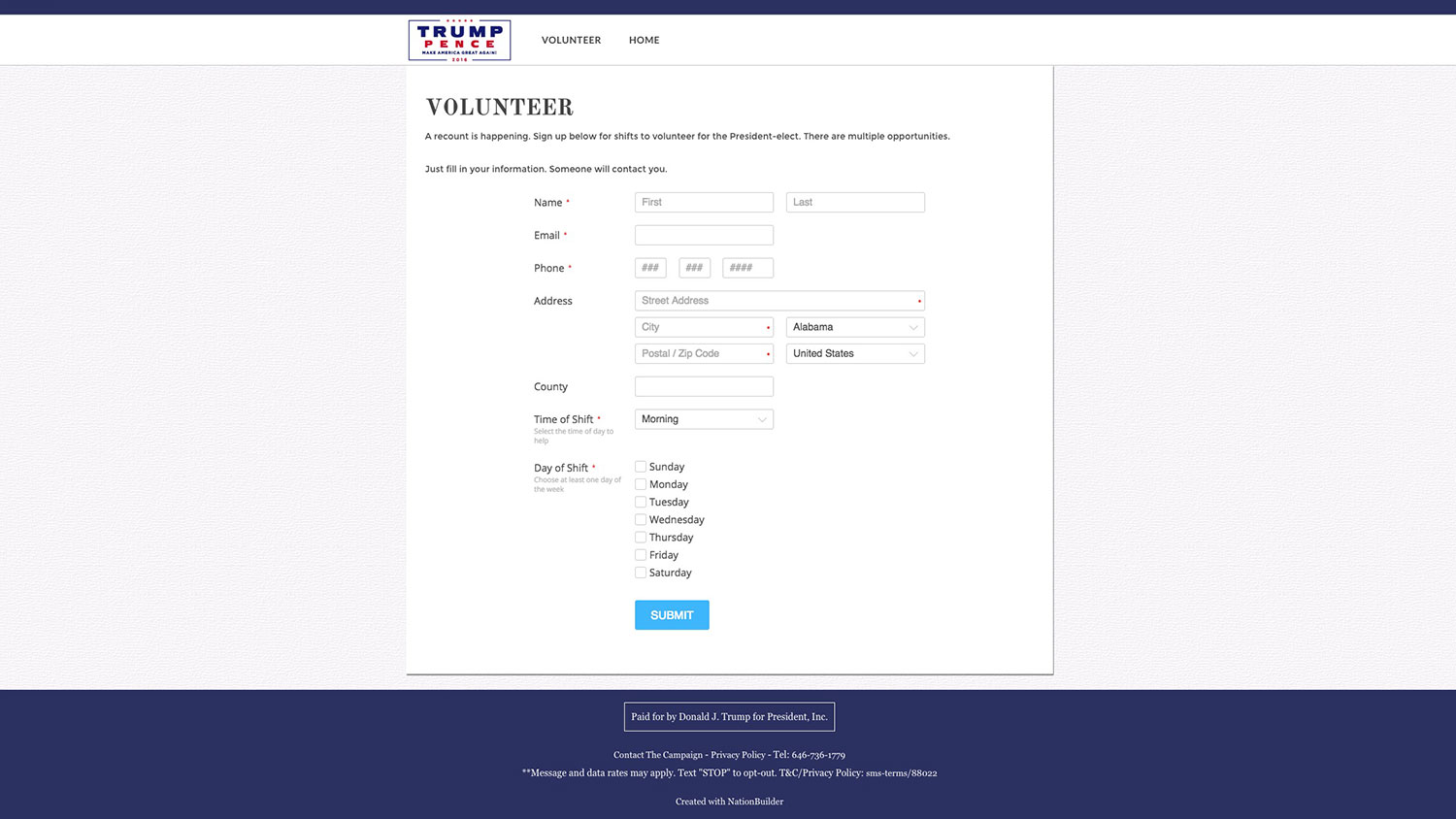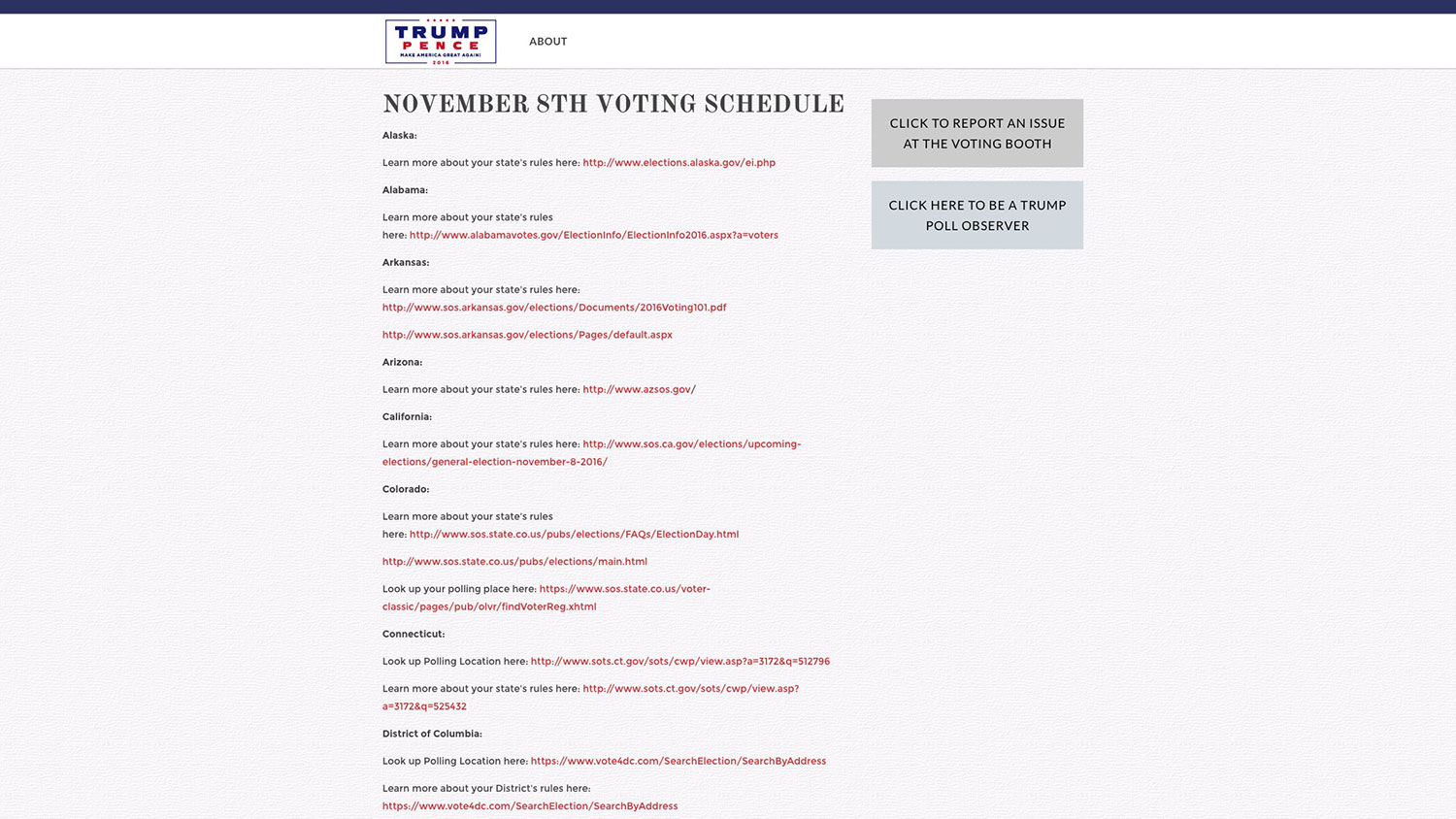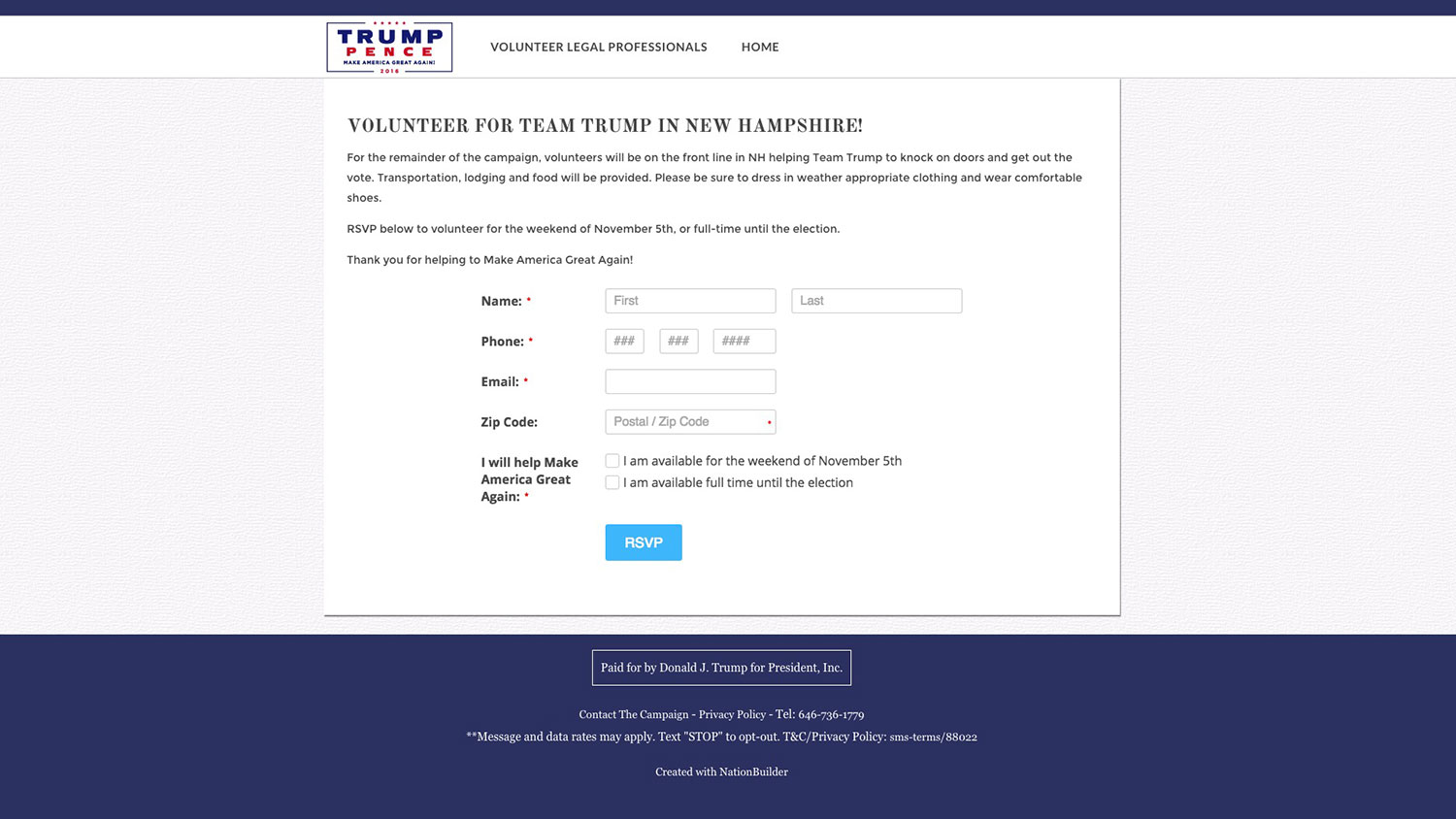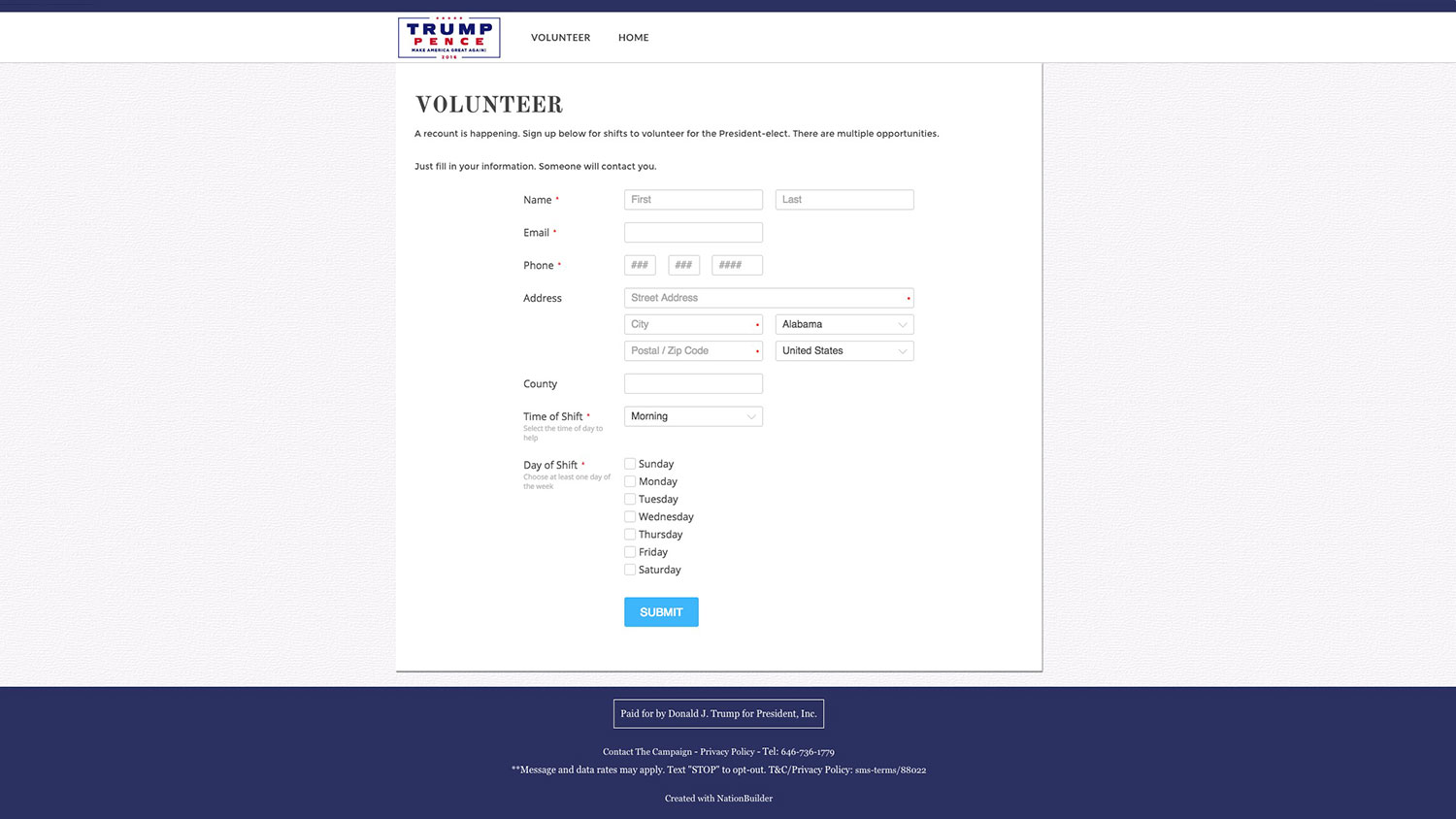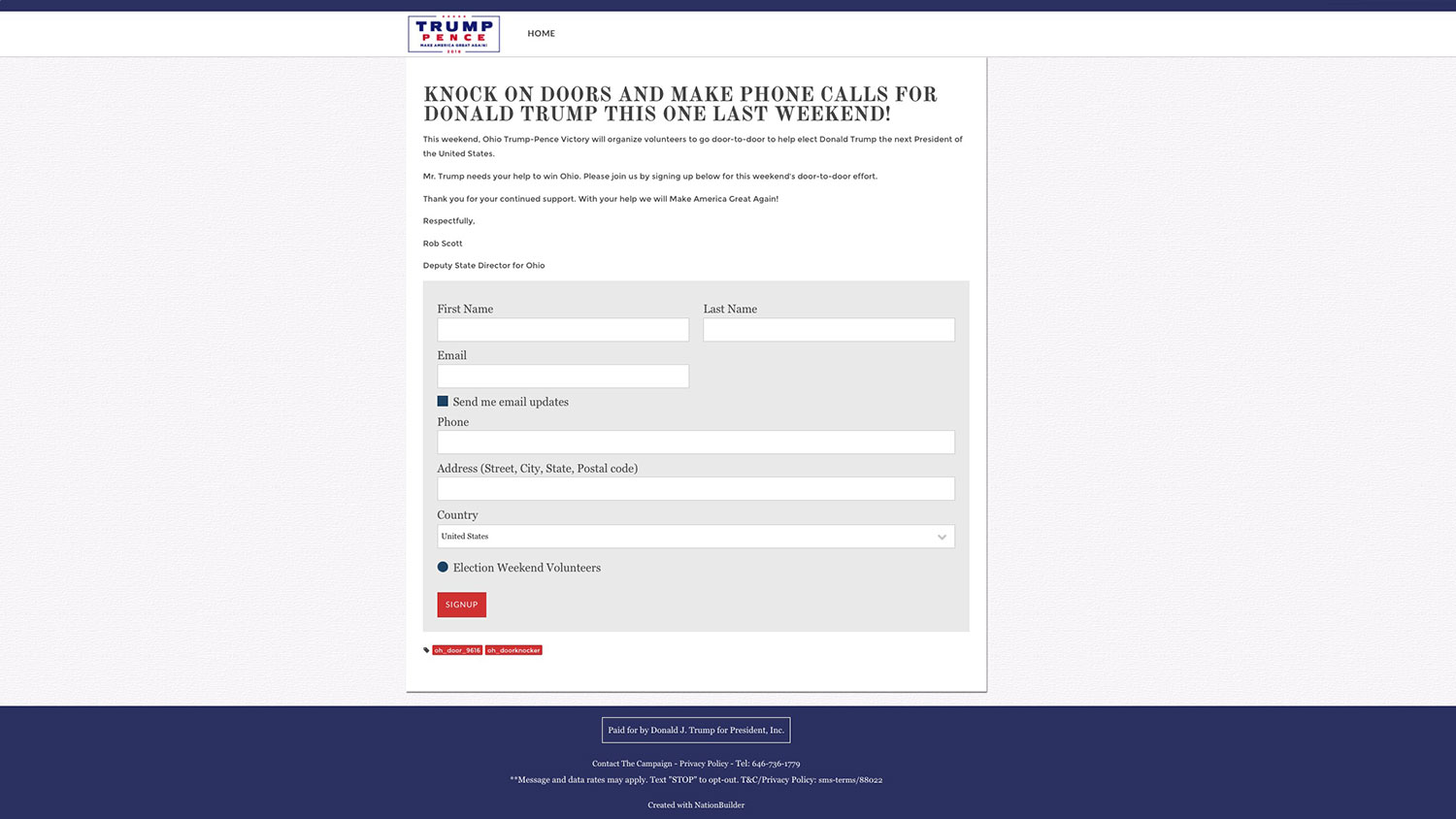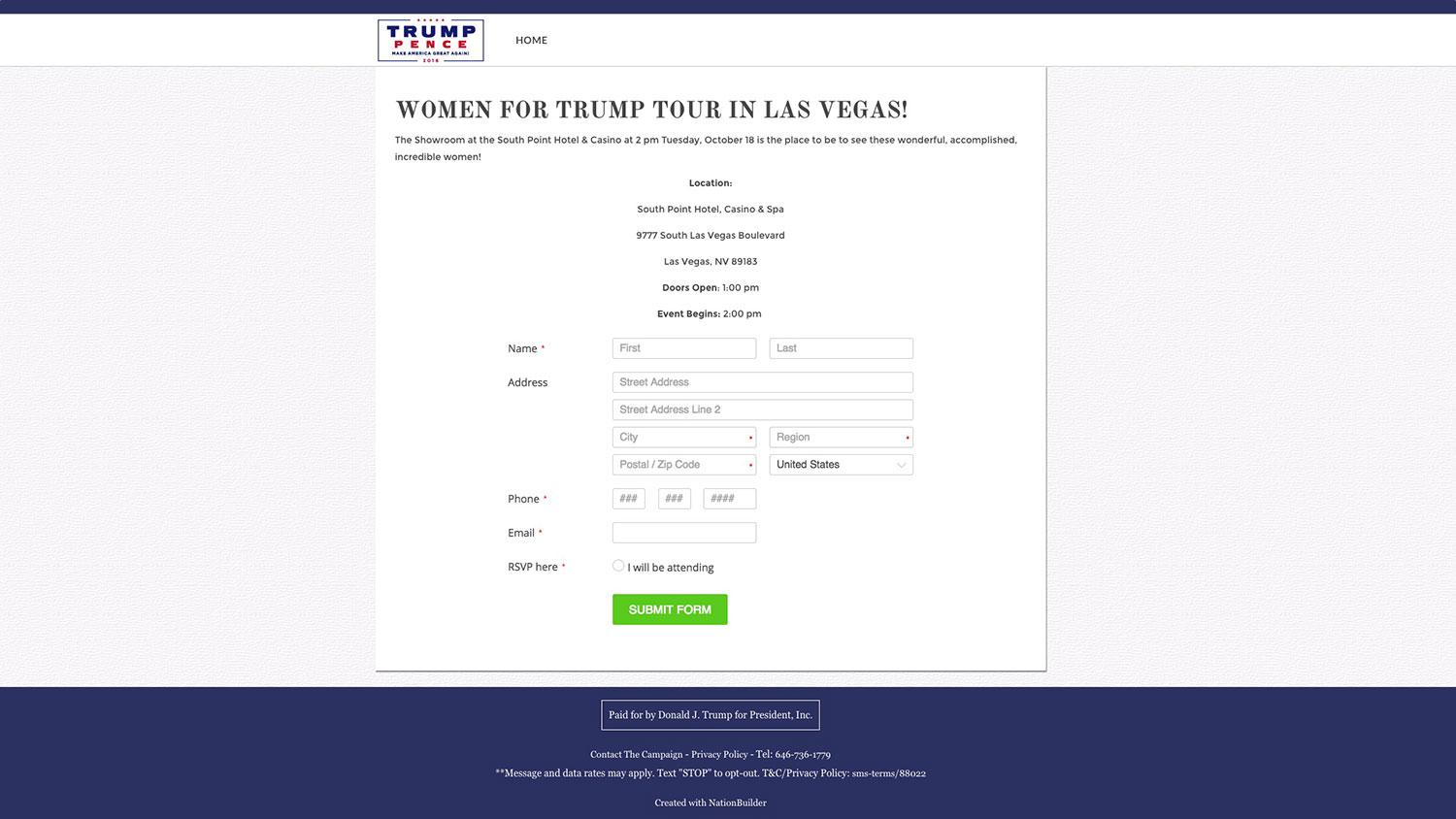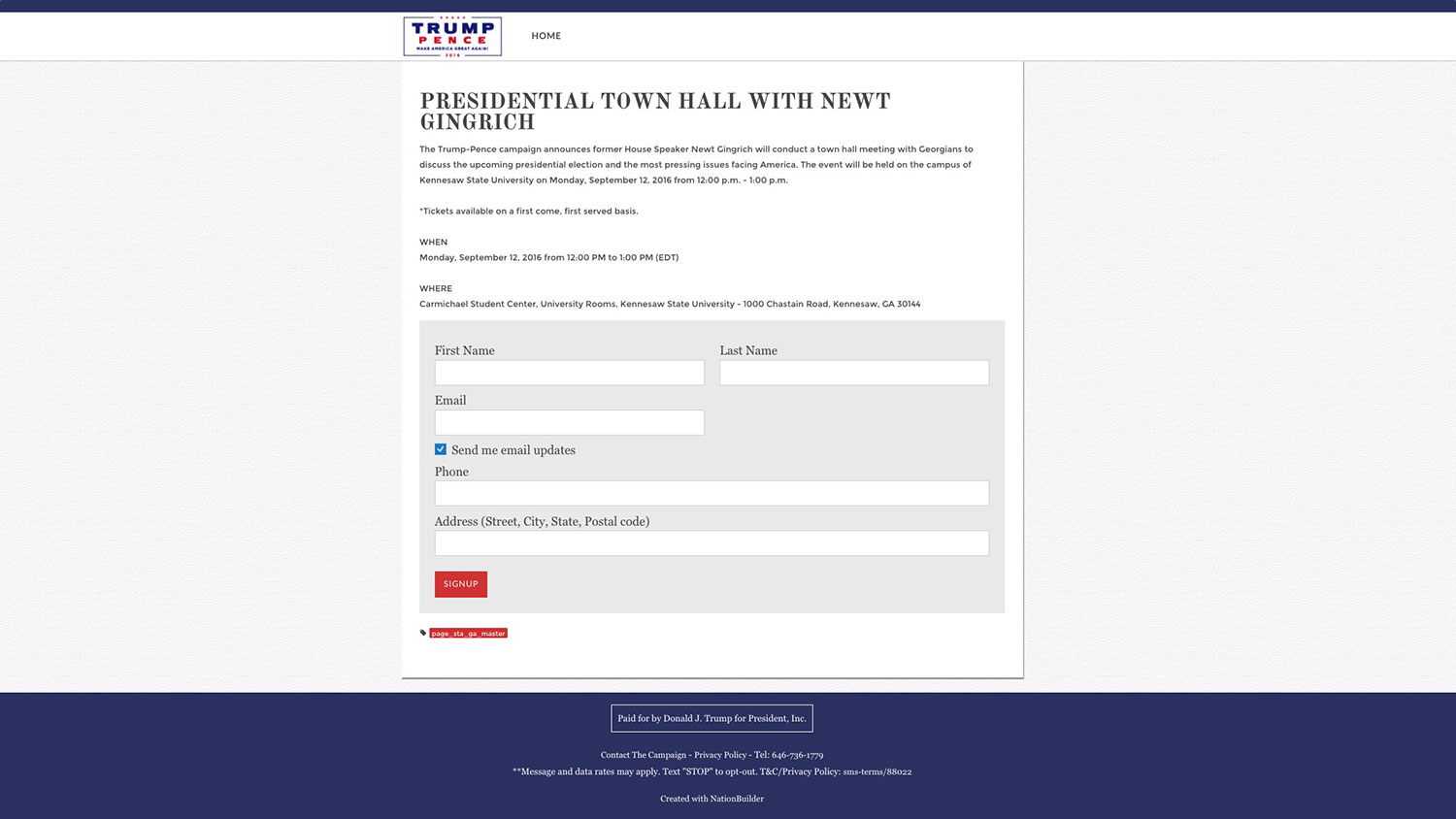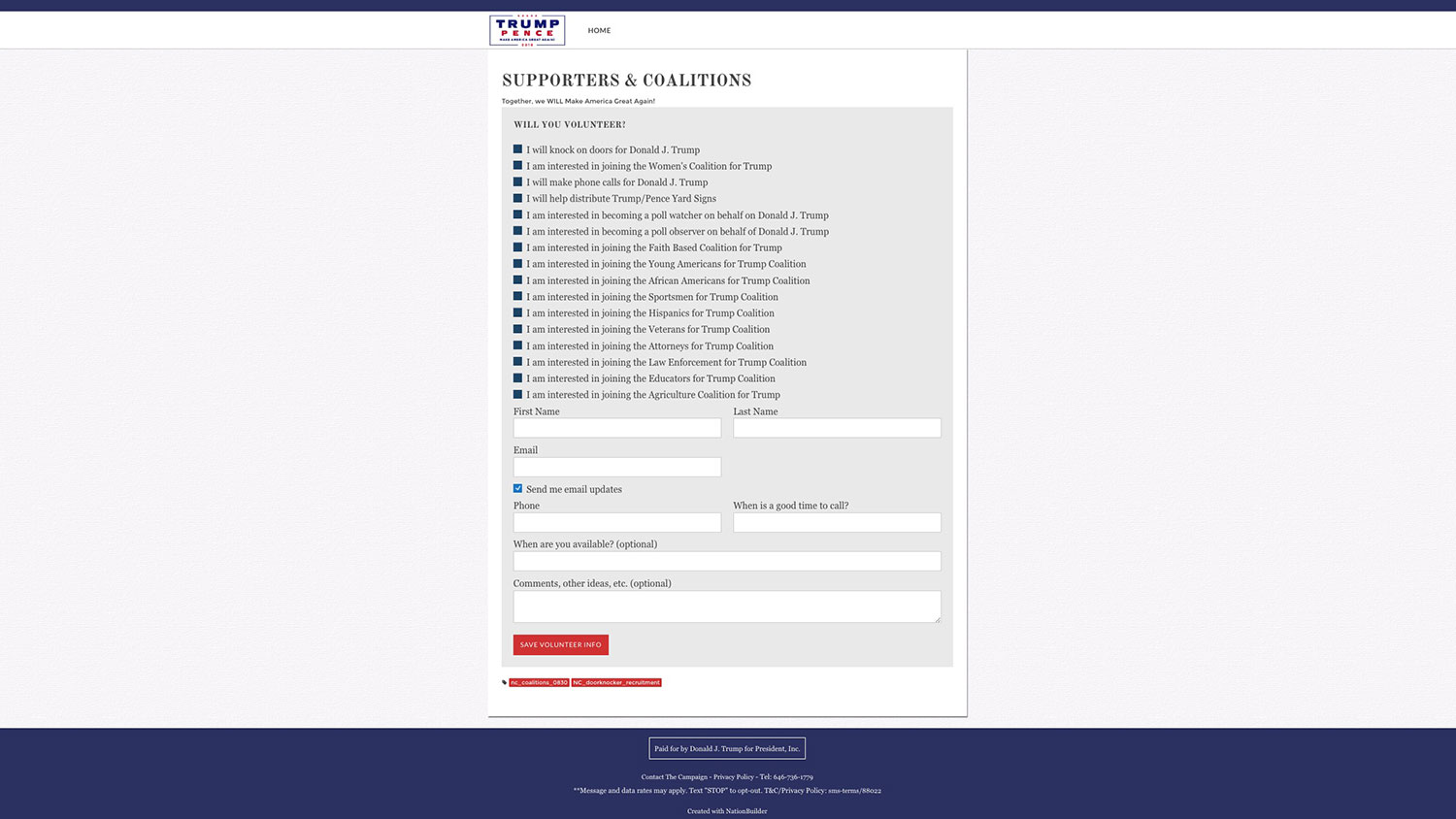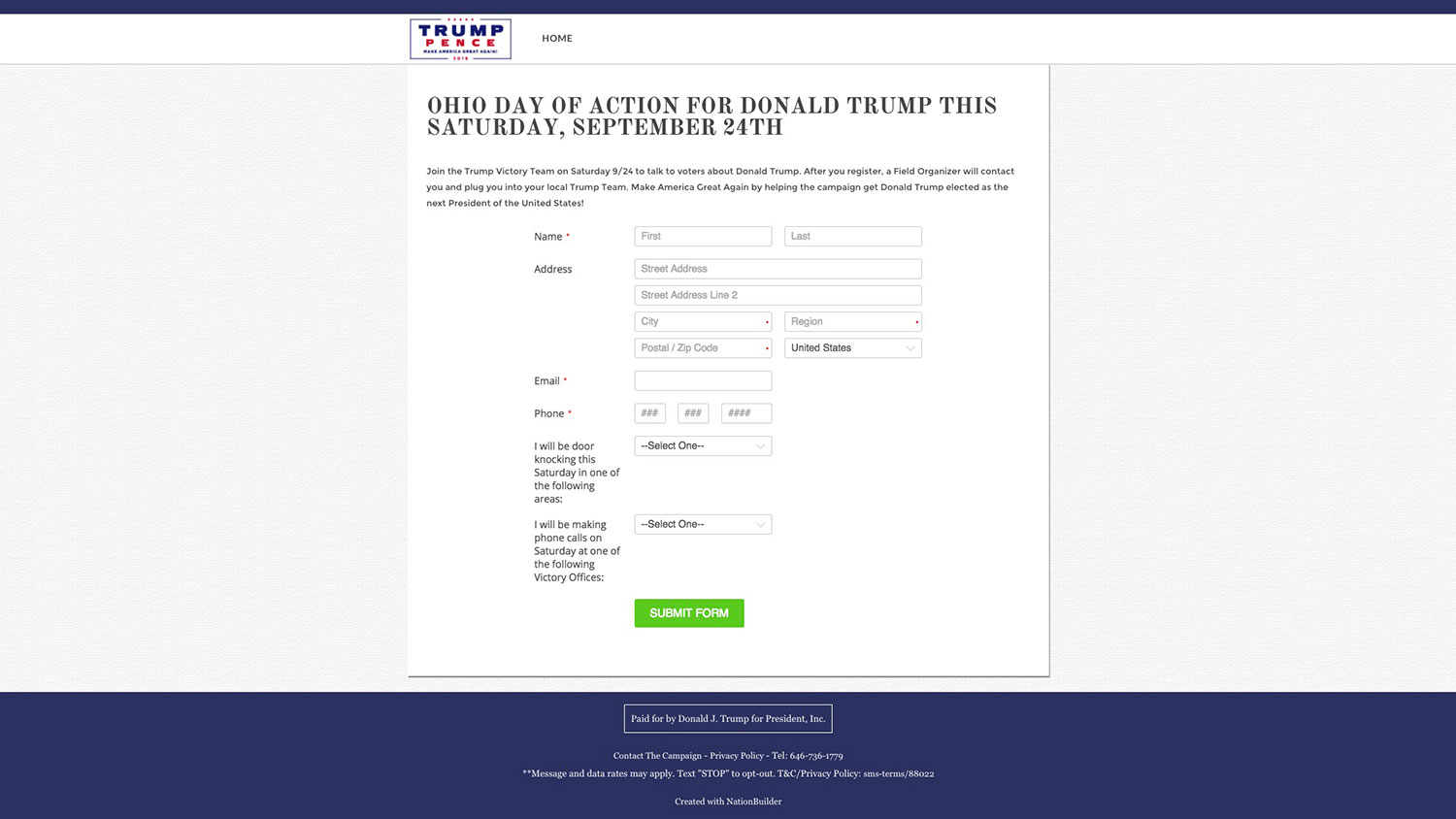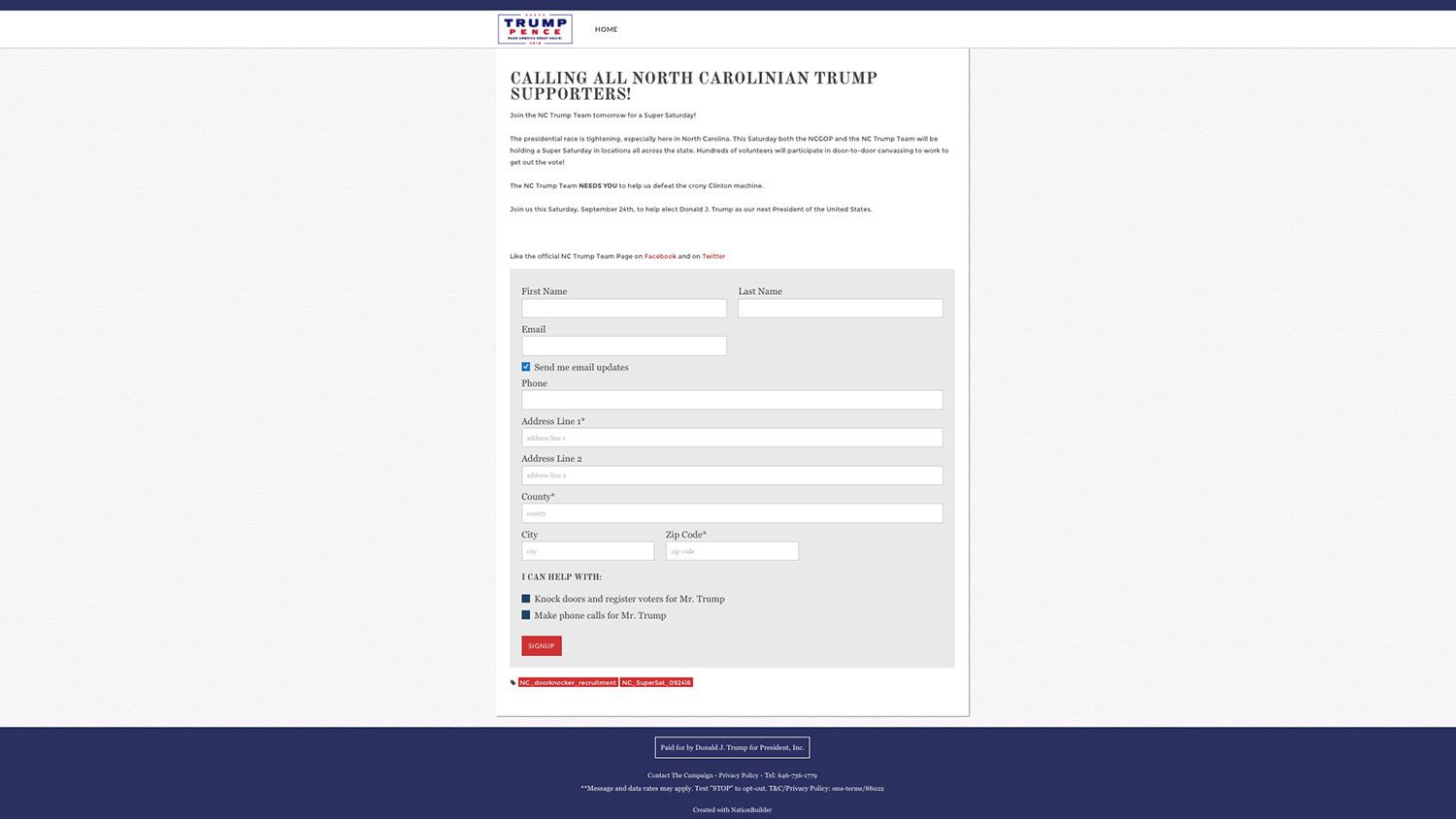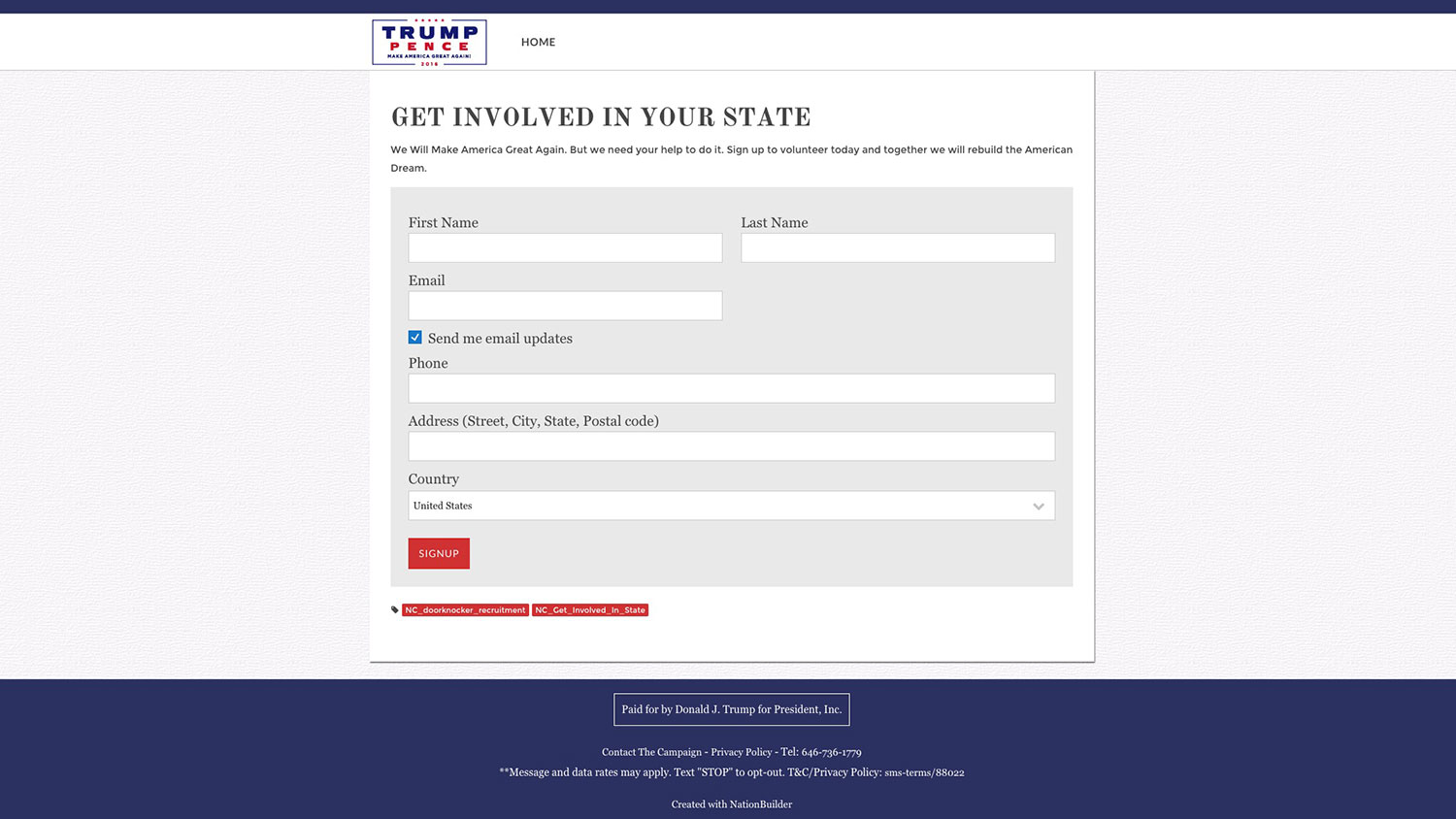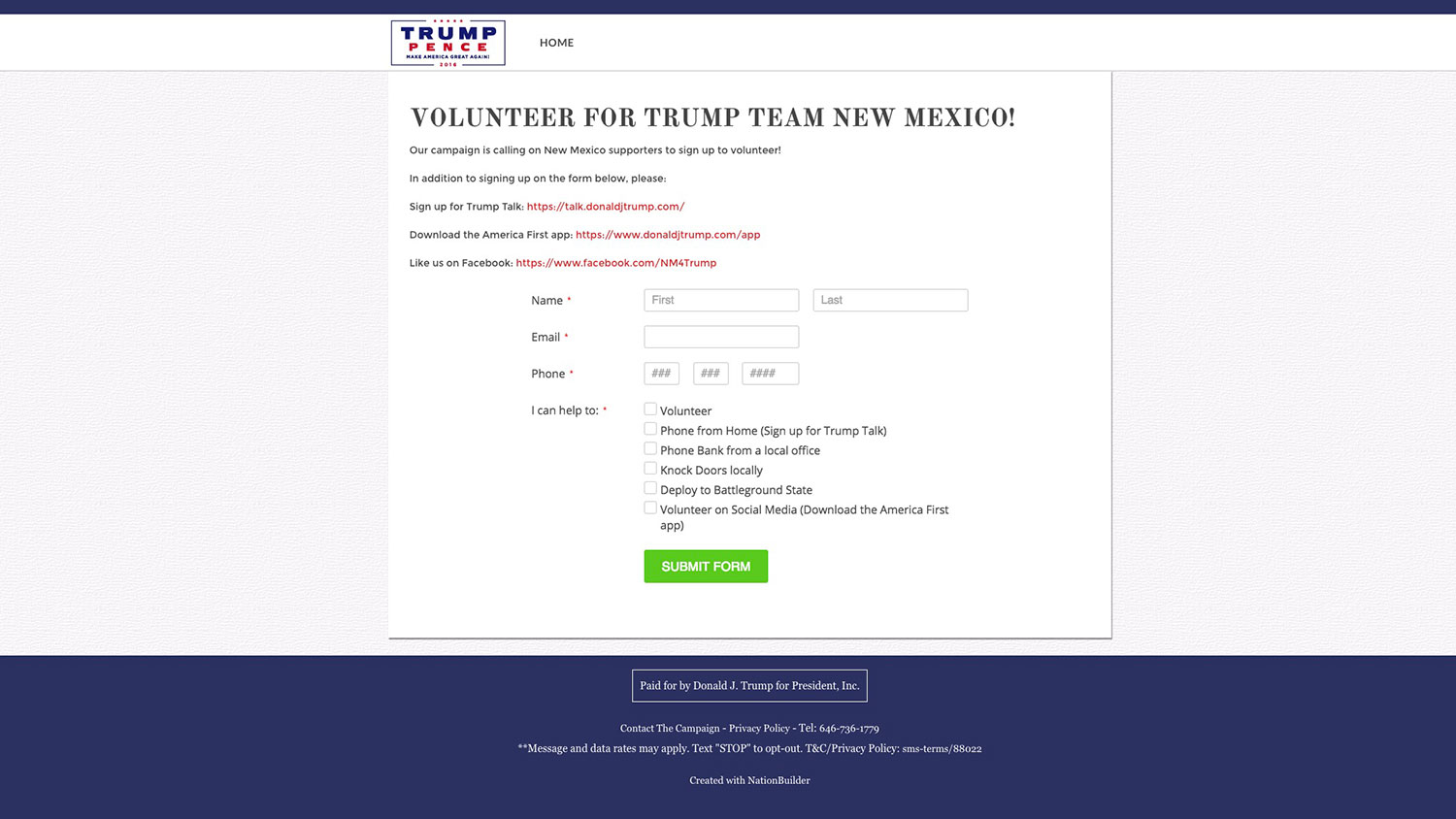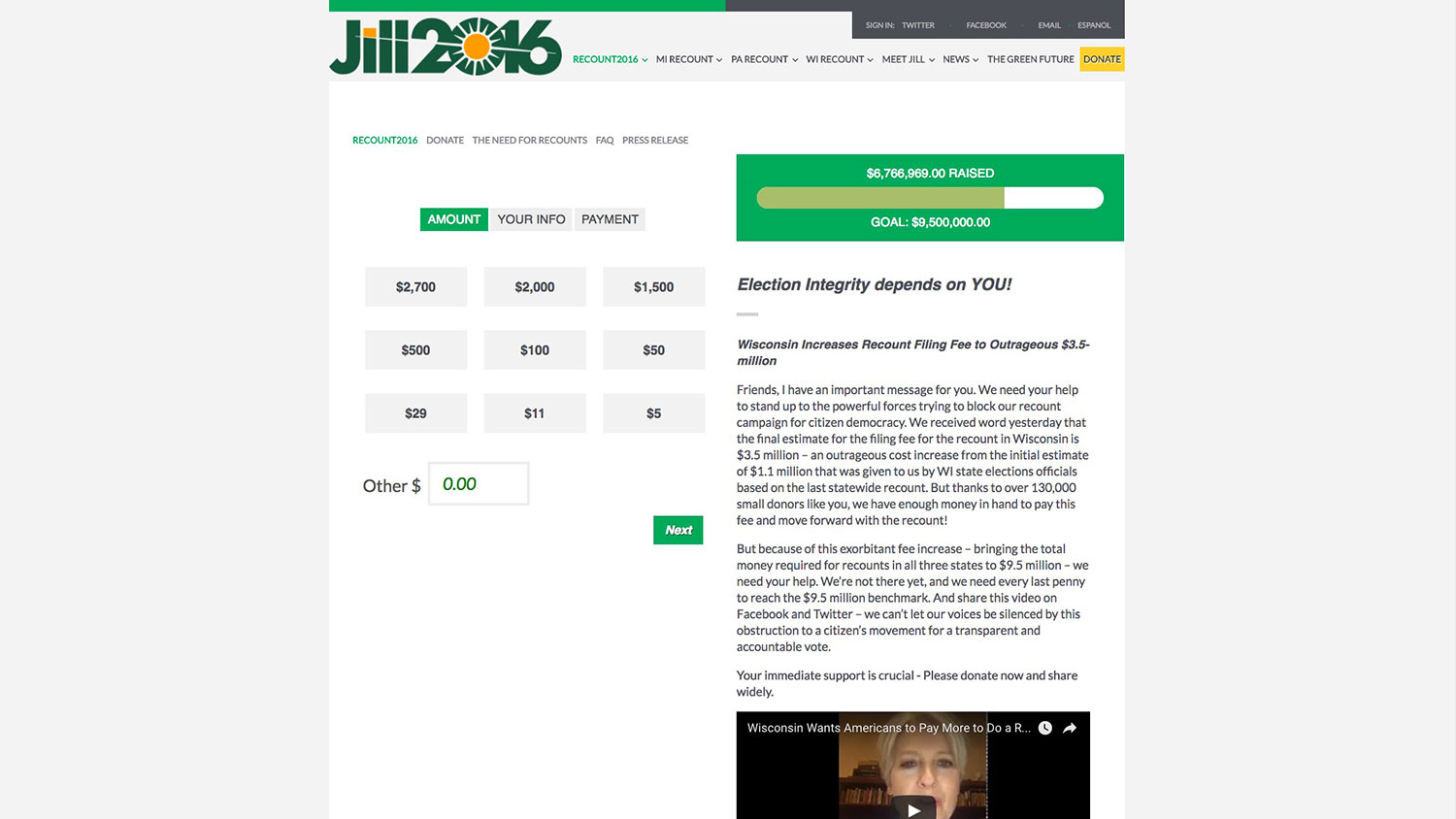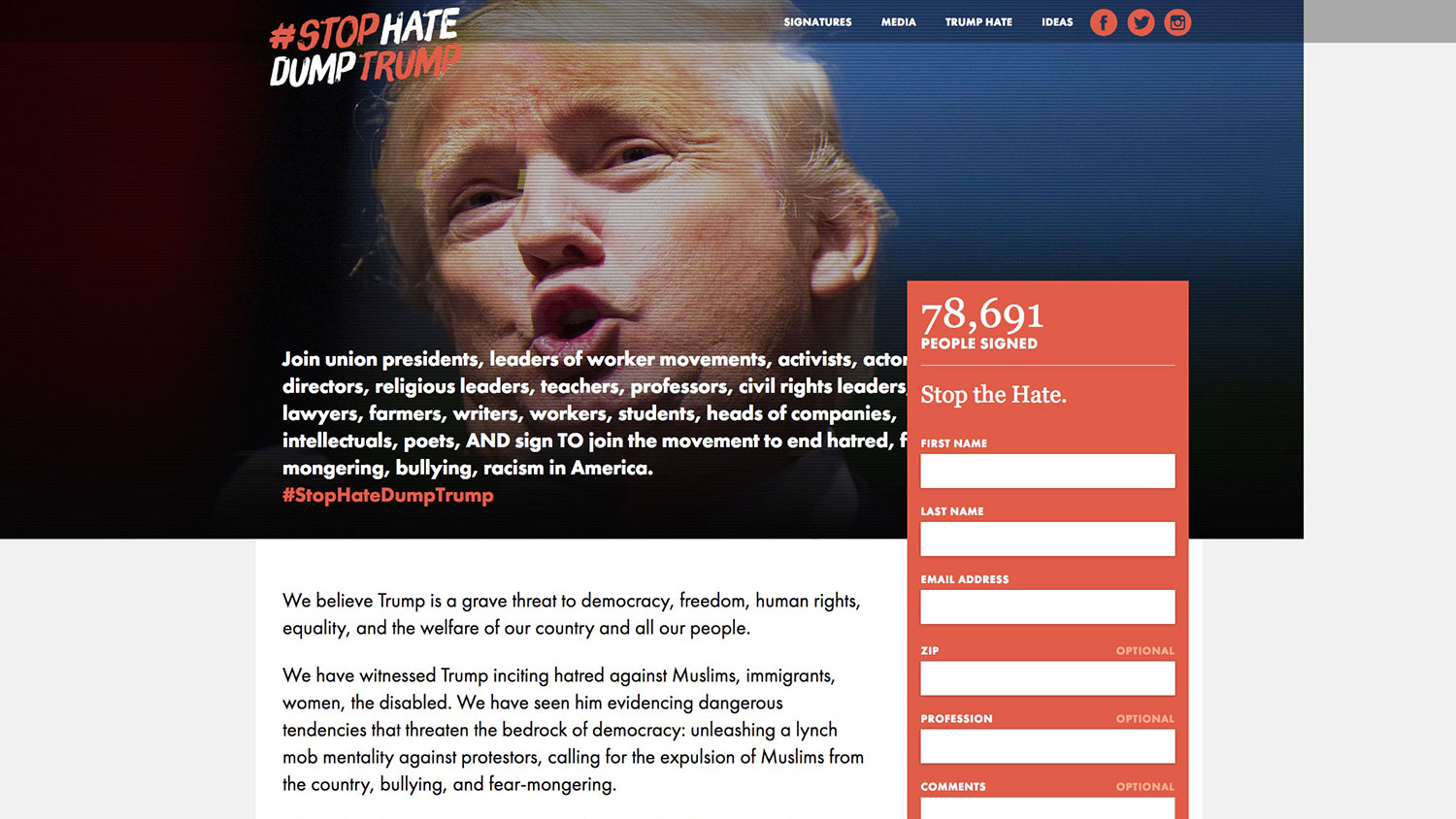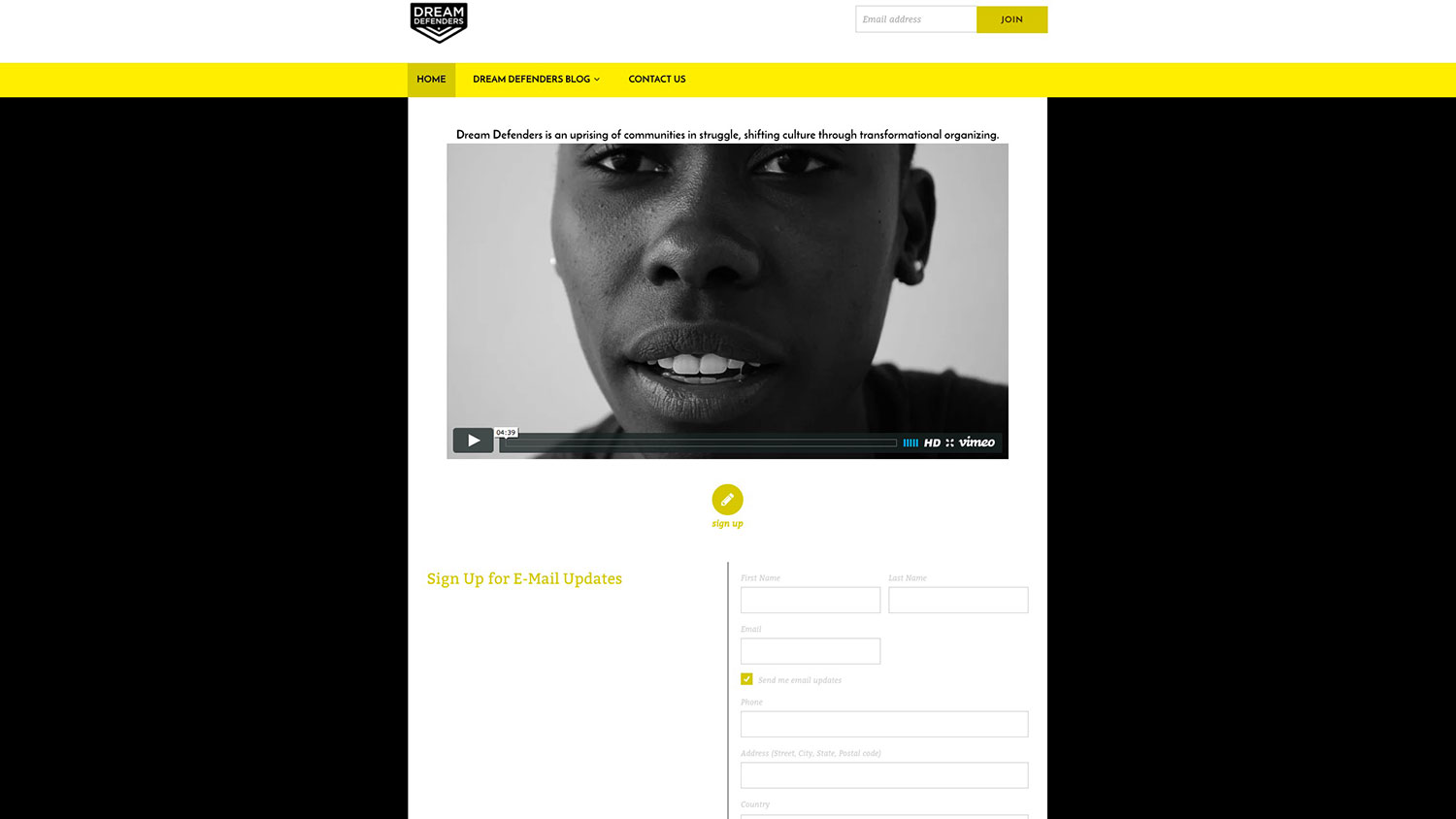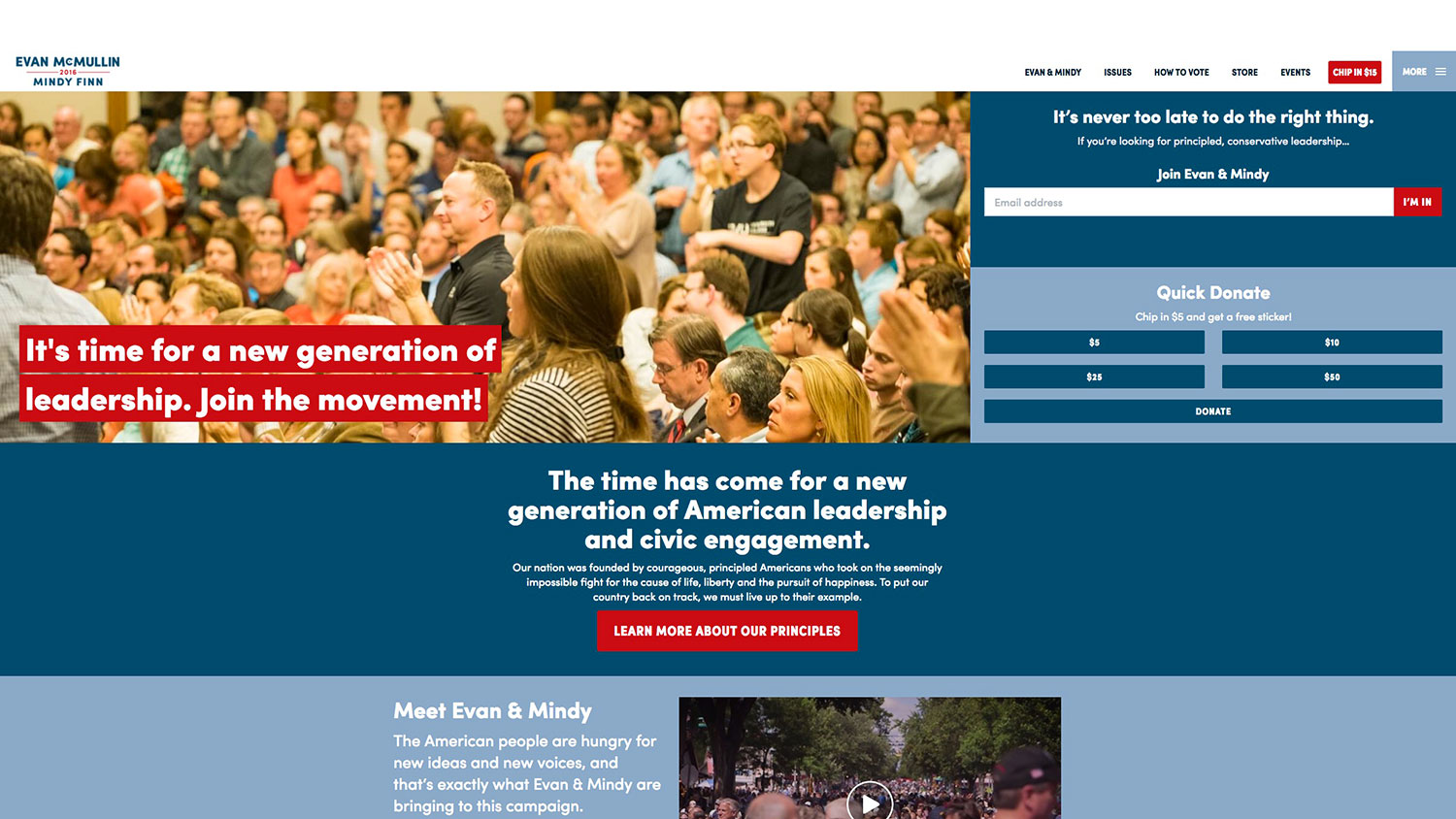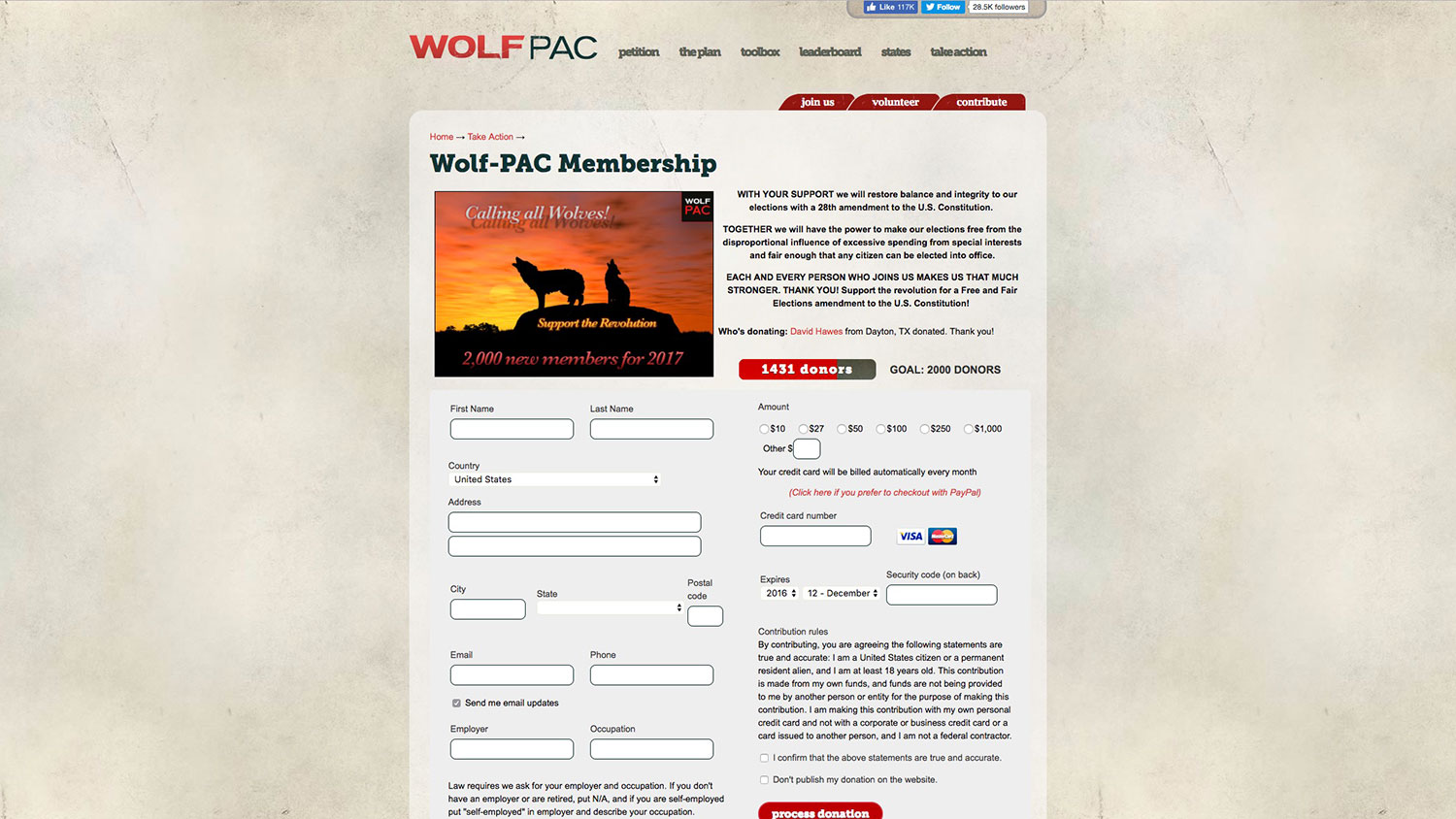
What do the Brexit campaign and Donald Trump’s ascent to the position of U.S. president have in common?
They were both facilitated by a piece of software called NationBuilder.
NationBuilder is “leadership software” that brings together features from services like MailChimp, WordPress, and PayPal into one package. According to company co-founder and CEO Jim Gilliam, who spoke to Digital Trends earlier this month, “the reality is that just about everyone in politics is using NationBuilder in some way.”
This apparently ubiquitous software has already played a role in two prominent public votes that produced incredibly divisive outcomes. While critics might attack Gilliam’s software because of the campaigns that used it, NationBuilder is a double-edged sword, and an example of the high-tech tools that modern politicians are learning to harness.
Email blast
On June 16, 2015, Donald Trump officially announced his intention to run for U.S. president in 2016. According to NationBuilder, the Trump campaign team made a call to the company the night before his announcement. Listening to Gilliam talk about how the software works and what it can do for clients, it’s not too surprising to hear that it was selected by Trump’s people.
“Do I like Donald Trump’s policies? Not particularly, but I don’t like a lot of the policies of our customers.”
“What we’ve found is that there are a lot of people out there who have a large customer base, or supporter base, or donor base,” explained Gilliam. “Folks who care about what they’re doing in some way. And they’re sitting on this untapped goldmine.”
NationBuilder helps individuals and organizations cast their influence into the wider world. It’s a one-stop shop for organizing events, sending out communications via email and on social media, and keeping a campaign’s website up to date.
These intertwining tasks are linked directly to their intended purpose, which is converting interest into tangible support, whether it’s in the form of voting intent, monetary donations, or volunteered time. Users can even set goals to ensure they’re reaching milestones as the campaign progresses.
Political campaigns can request voter files from NationBuilder, gaining a frequently updated pool of information that includes voter history and contact details, like email addresses and phone numbers. These files are available at district, state, and national levels, encompassing more than 190 million people in the United States who possess the right to vote.
Once an individual is added to a campaign’s database, they can be sent messages via social media, or emailed directly from the web client. All communication is logged so that staff can keep track of what contact has been made in the past, an organizational feature that ensures potential supporters aren’t bombarded by overly aggressive communications. NationBuilder allows users to push communications to potential supporters, and keep tabs on everyone that’s being courted.
It’s easy to see how a piece of software that helps spread a message online could be used to great effect. But NationBuilder was not designed for the Trump campaign, or even presidential campaigns specifically. The tool has implications far beyond top-ticket political races, and it’s not the only game in town.
Across the aisle
NationBuilder isn’t the only platform that political organizations and advocacy groups are using to carry out their efforts. Like many other fields, advocacy is being revolutionized by purpose-built software intended to help individuals get more done.
“Online organizing has become an expected part of any not-for-profit or campaign at nearly every level.”
“Nonprofit software for managing donor information, digital marketing, online fundraising, online advocacy, event registration and peer to peer fundraising have all been around for a long time,” said Dan Quirk, marketing manager for Salsa Labs, a company that designs engagement software for nonprofits. “But by and large, only organizations that had a big IT staff or were large enough to pay for custom integrations could get the data to talk to each other through different systems. Otherwise, nonprofit databases and tools operated in silos.”
Salsa started out in 2003 as a non-profit called Democracy in Action, which specialized in developing open-source software for progressive causes. Since then, the organization has pivoted to become a software-as-a-service company that focuses on allowing non-profits to cut through the white noise of mass mailings and broad communications with personalized content and interactions.
“Digital campaign managers at nonprofits have been using Salsa for years to fight for legislation at the federal, state, and local level, as well as to win the public relations battle against corporations,” said Quirk. “Over 100 million advocacy actions have been taken by supporters of causes. For example, Environmental Working Group got over a million actions taken in opposition to the Deny Americans the Right to Know (DARK) Act.”
“In the United States, online organizing has become an expected part of any not-for-profit or campaign at nearly every level,” said Patrick Michael Kane, founder of We Also Walk Dogs. His company started out by building the technology that underpinned MoveOn.org back in the 1990s, before developing its own advocacy software, ActionKit.
“Over time, more and more groups approached us wanting to run campaigns like MoveOn’s that were both politically nimble and technologically agile,” explained Kane. “We built ActionKit to meet that need.”
On the surface, ActionKit is broadly like NationBuilder; its feature set is intended to help users set up email blasts, carry out fundraising, and keep track of supporters, among other tasks. However, it’s very different in one key area — ActionKit is only offered to progressive non-profits and political organizations.
“This has been part of our DNA from day one,” said Kane. “We learn so much from our clients about how to improve the existing tools and create new ones. To turn around and sell that know-how to our clients’ opponents would be, frankly, repugnant.”
Fired up
“Do I like Donald Trump’s policies? Not particularly,” Gilliam explained. “But I don’t like a lot of the policies of our customers. You wouldn’t want me making those determinations.”
“I get so fired up when someone is using NationBuilder, particularly in ways that I had never anticipated before.”
NationBuilder was always envisioned as nonpartisan software. According to Gilliam, the idea was to empower all kinds of people to use the internet in their attempts to make a difference in the world.
“I get so fired up when someone is using NationBuilder, particularly in ways that I had never anticipated before,” said Gilliam. “When that light turns on in their eyes, when they’re like, ‘I can go and make something happen in the world, that’s possible for me,’ that’s just beautiful, even if I disagree with what it is that they want to do.”
Over the five years since the software launched, NationBuilder has been used for all kinds of campaigns. Gilliam recounted a story about an activist who used NationBuilder for something far removed from the world of politics. “Her then-fiancée got cancer. He had challenges with his health insurance and all kinds of things, it’s just very difficult — I mean, I’ve had cancer twice myself, so it’s a very difficult experience, being the person who’s taking care of someone else.”
NationBuilder helped co-ordinate an event to raise much-needed funds for medical expenses. Its text messaging feature helped keep supporters up-to-date on the timeline for surgery, so they could stay informed throughout the process.
“That was personally moving for me, because of my own experience,” said Gilliam.
NationBuilder can be used to help a multimillion-dollar campaign clinch the presidency, or to help some activists save the life of a friend. The fact that it can serve such wildly different purposes is no accident.
Breaking the echo chamber
NationBuilder’s goal is to give anyone and everyone the ability to state a viewpoint and rally others around it. By design, the intention isn’t to give a platform to any one way of thinking — it’s simply to give people the tools to forward their agenda, so the public can have the final say.
“The internet is what we make of it; we get to decide and we get to choose how it is that we want to be together.”
This approach was inspired by Gilliam’s early affinity with the internet.
“I was in this perfectly curated bubble, growing up as an evangelical Christian,” he explained. “The internet was my ability to escape out of that bubble and meet people.” Gilliam used the internet to gain an insight into experiences other than his own. He’s worried by the growing trend of internet users who seclude themselves in an echo chamber of familiar opinions. “That’s the exact opposite of what the internet is to me,” he added. “And I’m concerned about that.”
NationBuilder is a tool that can be used to help a new idea or viewpoint reach voters. However, that’s not so much because of the software itself — it’s the power of the internet, being harnessed by a product.
“All of the information is out there,” said Gilliam. “There are plenty of ways to learn about other people, to connect with people that aren’t like you. It’s all there on the internet. People just have to actually want it. That’s our next challenge.”
For every open-minded online reader, there’s another person who goes online purely to reinforce their existing assumptions. NationBuilder can, has, and will continue to be used for the latter purpose. But it’s also a tool for reaching out those who might not otherwise hear a certain point of view. Its targeting and filtering features, and those found in competitors like Salsa, can be used to find and approach previously untapped audiences.
“The internet is what we make of it; we get to decide and we get to choose how it is that we want to be together,” said Gilliam. “One thing that excites me about this moment in time is that that conversation is in the mix now. We’re starting, at least a little bit, to talk about that. And take some responsibility, in our own lives and as a culture, for the kind of world we want to create.”
There are a lot of people who feel let down by their government at the moment, in the United States, in the United Kingdom, and elsewhere around the globe. Many will gripe and move on, but some will take on the task of bringing about real change. NationBuilder, and other tools like it, could be a boon to them.

